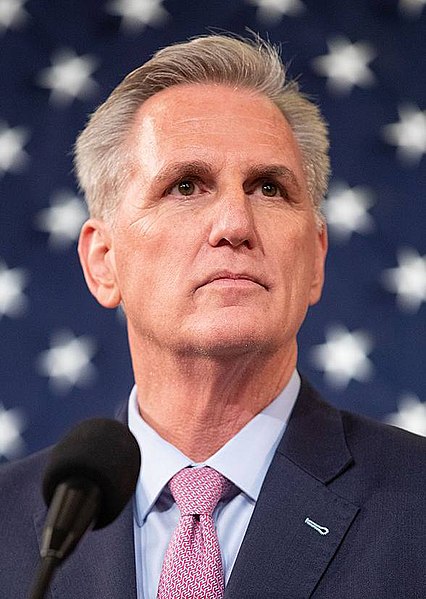The House of Representatives voted 216 to 210 this past Tuesday to remove Representative Kevin McCarthy of California from the speakership, leaving the chamber without a leader and kicking off a move into uncharted territory for the House. This is the first time in US history that a speaker has ever been removed.
This vote comes days after McCarthy and many other Republican representatives in the House struck an 11th-hour deal with Democrats to continue funding the government for a period of 45 more days, after staring down potential government shutdown.
The ousting was the culmination of a year of bitter struggle within the Republican party, with a growing division between moderate Republicans and hardliner Republicans in the House. With the 2022 elections leaving a slim Republican majority in the House, Mr. McCarthy has spent his 10 months in power attempting to reconcile the party and end the power struggle between himself and the far-right faction in his party that attempted to block his ascent to the speakership in January. This faction has also opposed McCarthy’s other moves this year to prevent the nation from defaulting on its debt.
Before the vote, a surreal scene of inter-party conflict unfolded on the House floor, as members of the hard-right vocally chastised their party leader, and left moderate members of the party to defend him, as Democrats watched in silence.
The vote was spearheaded by Republican Matt Gaetz of Florida, who brought a motion to vacate onto the House floor Monday night in a move that, while it had been brought to the House floor at other times in history, has never been successfully used to remove a speaker.
This time, however, was different. While McCarthy had most of his party in support of him, he would need to secure a majority of the House voting against his removal to stay in power. But as representatives rose one by one from their seats, in the same way they vote to elect a speaker, it became clear that McCarthy would not remain in power. With the vote concluded, McCarthy’s fate was decided by a united caucus of Democrats, and 8 members of his own party.
These 8 members were Representatives Andy Biggs of Arizona, Ken Buck of Colorado, Tim Burchett of Tennessee, Eli Crane of Arizona, Bob Good of Virginia, Nancy Mace of South Carolina, and Matt Rosendale of Montana, alongside Mr. Gaetz.
The vote has left the House in chaos. As Republicans scramble to find a new speaker, the country counts down the time, as Congress has just over 40 days to make a budget decision until another potential government shutdown.
Republicans met on Tuesday night after the vote to make a plan for going forward. Talks were left by Representative Patrick T. McHenry of North Carolina, who McCarthy named as the interim speaker. McHenry does not have the power to run the chamber, only to preside over the election of a new speaker and to call a recess for the House, which he immediately did.
While there is no clear replacement for McCarthy, some names have come up, including McHenry, McCarthy ally Tom Cole of Oklahoma, Steve Scalise of Louisiana and Tom Emmer of Minnesota.
In the days leading up to the vote, Democrats struggled with whether or not to remove McCarthy. However, in a meeting Tuesday morning, Representative Hakeem Jeffries of New York, the Democrat leader in the House, instructed fellow Democrats to vote against McCarthy, citing Republicans’ unwillingness to break from MAGA extremism. Other reasons include his vote to overturn the 2020 presidential election, his decision to go back on a debt deal he brokered with President Biden over the summer, and his decision to propose an impeachment question against Biden.
“I don’t regret standing up for choosing governance over grievance,” McCarthy said after the vote for his removal. “It is my responsibility. It is my job. I do not regret negotiating; our government is designed to find compromise.”
What this means for the future of the country and its governance is unclear. But what we do know is that this marks a dangerous precedent for a country struggling with political extremism, and marks a great divide within America’s dominant parties that promises an unstable future going forward.












